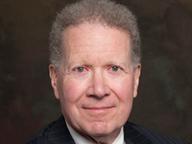Faculty News
—
In a letter to the editor, Prof. Michael Posner illustrates the progress of human rights advocacy
—

Excerpt from The Washington Post -- "In the past 20 years, global companies have increased their focus on human rights issues. Whether addressing factory safety in Bangladesh, security challenges in mining or Internet privacy, companies are grappling with these important issues."
Faculty News
—

Excerpt from The Washington Post -- "In the past 20 years, global companies have increased their focus on human rights issues. Whether addressing factory safety in Bangladesh, security challenges in mining or Internet privacy, companies are grappling with these important issues."


















